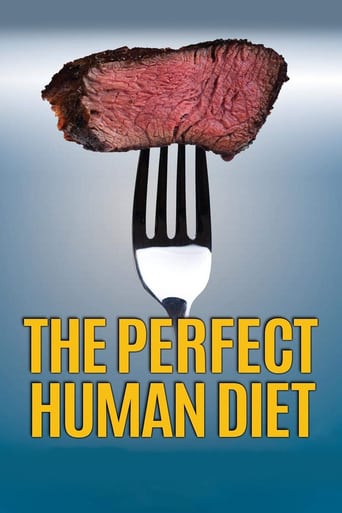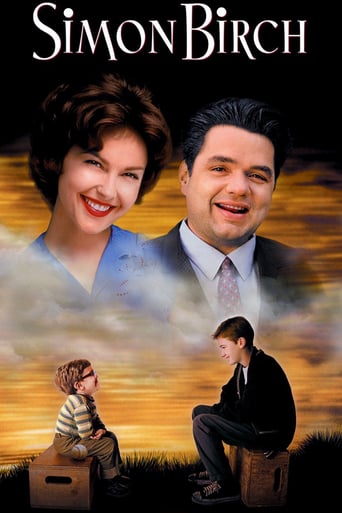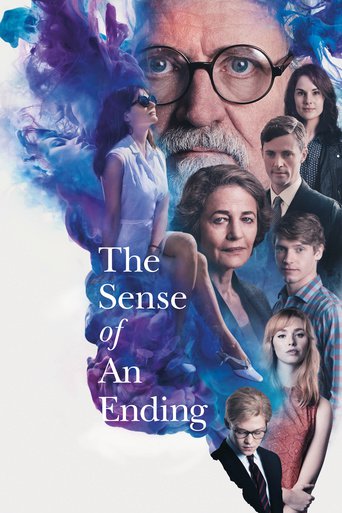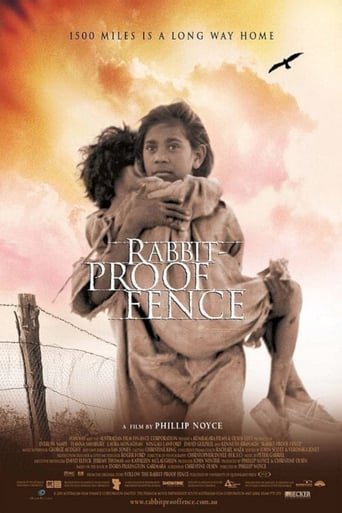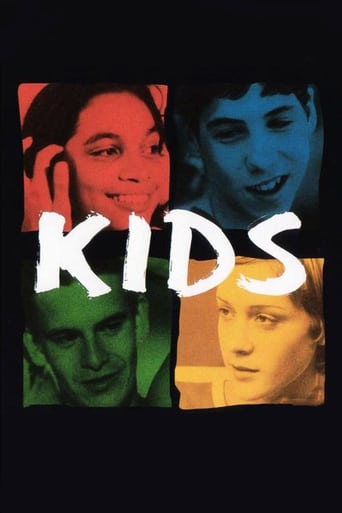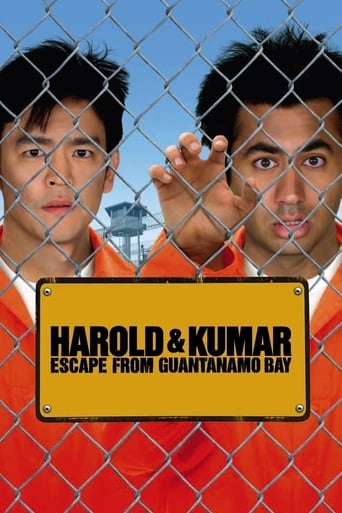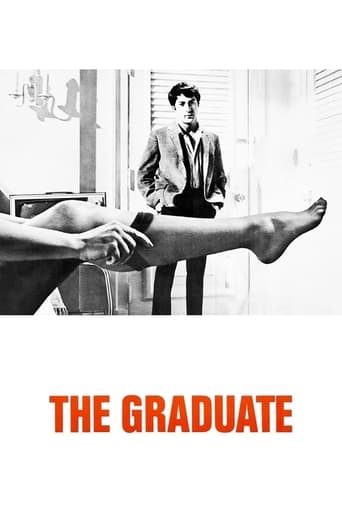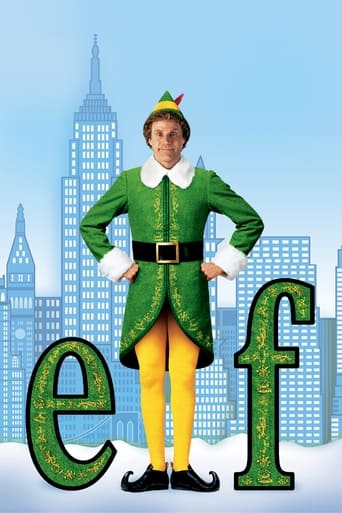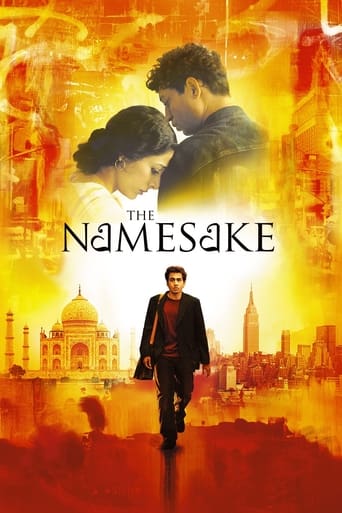


The Namesake
After moving from Calcutta to New York, members of the Ganguli family maintain a delicate balancing act between honoring the traditions of their native India and blending into American culture. Although parents Ashoke and Ashima are proud of the sacrifices they make to give their children opportunities, their son Gogol strives to forge his own identity without forgetting his heritage.
-
- Cast:
- Kal Penn , Tabu , Irrfan Khan , Jacinda Barrett , Zuleikha Robinson , Ruma Guha Thakurta , Sabyasachi Chakraborty


Similar titles

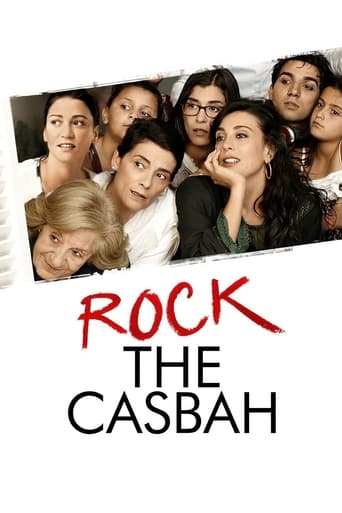

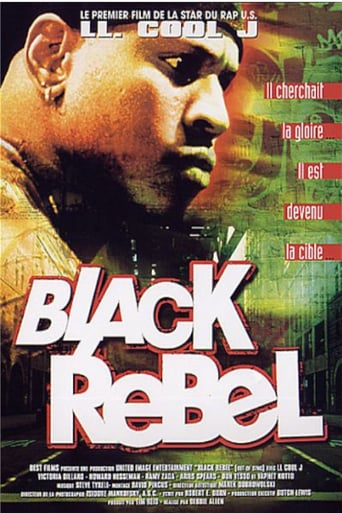
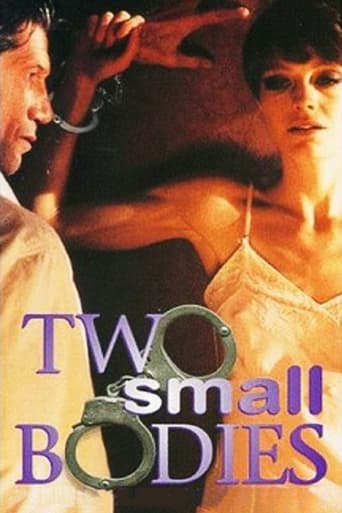
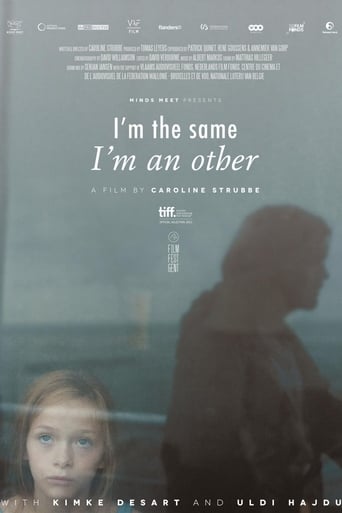
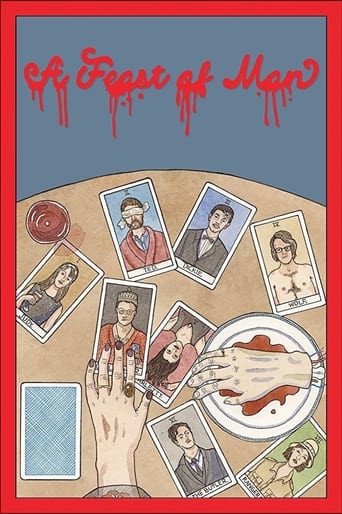
Reviews
Wonderful Movie
One of my all time favorites.
Tells a fascinating and unsettling true story, and does so well, without pretending to have all the answers.
The film may be flawed, but its message is not.
An Indian man takes his new bride to America, where they raise a family and tackle everyday struggles of migration and identity. The Namesake is an exploration of what it means to be Indian and living in the diaspora. At times this is dealt with in a rather obvious and mundane manner, such as when the American girlfriend of second-generation Indian Gogol is too touchy-feely with older Indians, and wears the wrong colour clothes to a funeral. The lack of freshness and imagination in the cultural clashes is compensated for by a depth in charaterisation and subtlety in the depiction of family relations. The cinematography too depicts India as colourful and vibrant, but America is always muted, gray, and at times speckled with snow. India has been left behind for material and career gains, the pictures say, but something soulful and human has been lost in the process. This is slow-burn film, with no huge dramatic arcs, but instead full of the small dramas of day-to-day life authentically and sincerely depicted. This is a love-letter to the Indian experience of migration, diaspora and loss.
As a daughter of two immigrant Indian parents, I could perfectly identify myself with the main character: the inner struggles during high school to fit in the Western world while realizing you cannot change your roots and culture. This movie was a huge eye opener to me, and many others who grow up in two different cultures and the most beautiful part is the realization that there is no superior culture. One must accept and find out what matters most and only then one can be truly free and happy.
The Namesake reminded me of a really involving Chinese film released somewhere around the middle of the last decade; that of Yang Zhang's Sunflower, a film that balanced a family's plight over three-or-so decades of Chinese living as husbands and wives and mothers and sons to the central characters each interlocked across the good times; bad times; political times and times wherein natural disasters would strike and affect everyone. Here, Mira Nair's film, The Namesake, is a neat little drama additionally rearing off down similar routes of the expansive and of the all-embracing, specifically in its telling of the exploits of different generations of family members belonging to the same household as they strive to get by. In addition to this admirable approach, it will strike you as being thematically similar to Sarah Gavron's 2007 piece Brick Lane – a film released slightly later than The Namesake, but a film covering those of a Central Asian descent shifting to the Western world and getting caught up in the cultural clash-plus-traumas which appear to come with doing such a thing.At the centre of the piece is this idea based on identity and whom one is on top of where one belongs; something epitomised by a character who eventually becomes more prominent once he's grown up and into an adult. He dislikes his Christian name, a name his father gave him out of the fact it is the same as his father's favourite author, who was Russian – the boy adamant that he'll change it when he's finally able to. In a film about inter-racial relationships and cross continental living, as well as differing nationalities brewing up inside of a metaphorical pressure cooker, this idea of sticking to what you are or holding on to what you were given, encapsulated in this younger character and his wrestling with his own name, neatly epitomises Nair's hypothesis of the challenges with keeping true to where one came from, although at the same time balancing what a newfound locale and its culture come to expect of you.The film is no particular person's story, more-so it is an instance in which the director has gone on to try and depict an entire family through two generations. Credit is due to Nair, who opts for a brave and grandiose approach to a story that might have been told simpler and not as well. We start with Bengali natives Ashoke Ganguli (Khan), and his bride-to be Ashima (Tabu); two people beginning in a poor but functioning locale in the late 1970s surrounded by outspoken locals and a train network which is, judging by the opening scene, a little less than particularly sturdy. Ashima and her family's money situation is not good; the coming into contact with Ashoke leading to their joining of one another in matrimony; their immigration to America the end result as Ashima escapes poverty and the humiliation of only being able to enjoy fleeting exposures to "Made in U.S.A." produce back in India, as opposed to being in amongst the core of such things now. Initially, the film's association with this woman drives proceedings; her dwelling in a place as different as New York is to India seeing her accidentally hot-wash her husband's jumper, whilst longing gazes outwards at the world from her dwelling's windows, as icicles hang from rafters and snow lies on the ground, alludes to the gulf in difference in regards to daily grind and climate.The film covers their rise through life as successes of varying ilks befall them, no less the births of Sonia (Sahira Nair) and Gogol (Penn); Gogol being that aforementioned character whose name it is syncs up with his father's favourite Russian writer. With Gogol's ascent into young adulthood comes the film's shift of principal focus from his mother, to him; the film shooting his arrival to this stage in his life with warm and welcoming tones seeing freshly mown lawns dotted around the estate within which they're based, as well as kids playing in the street, thus reiterating a sense of unity. One man is trying to fix his car in the vicinity - this is very much the sort of place in which broken items get mended rather than left out to rust and clutter the place up. In this regard, Nair rejects harder and more demeaning depictions of New York City and life inside of it; The Namesake a film persistently shooting its location as the warm and welcoming haven Nair takes it upon herself to construct it as, as if the place is constantly seen as this newfound Utopia the Ganguli's built their lives and that nothing could ever blot it. The film is a touching character study of people not native to a nation attempting to find solace with it as well as themselves; a film depicting such things with the tensions that brew up out of close-knit family set-ups making for the sort of feature length drama about people travelling great distances for a great deal of the time, in body as well as in mind.
Good movies are like wine-better as they age. I had enjoyed the movie so much on the first viewing (few salient scenes like Ashok making the call from the phone booth in an hospital corridor, was still fresh in the memory) I reviewed the movie again and relived Mira Nair's excellent story telling of Jhumpa Lahiri's book. This duo are few of the best talent that Non Resident Indian's (NRI's) have to offer. The story is binding like a good book. Both Irrfan Khan and Kal Penn stand out with their acting. There are better actresses than Tabu, who is not a Bengali-neither Irrfan Khan but he looks more like a Ganguly-who could have done a better job, but NRI directors neither see Indian films nor they are familiar with good talent or their views are skewed.) The screenplay is short and simple with sprinkling of Indian humor. Mira Nair, has a knack of narrating a story in short takes that has a lot of depth and at the same time keeps the story moving (like Ashima waving at Ashok or Ashok taking Gogol on the short pier, missing the camera or the time when Ashok gifts a book on Gogol's birthday) She doesn't dwell too much on a scene. Kal Penn, is one actor who really does a great justice to his part, where millions of teenagers can identify with-caught between cultures and identity. The ending is poignant. Two flaws by Nair-if she had skipped few scenes,this could have been a family movie instead of PG-13 and would fetched a wider audience. Two, the casting of Tabu and Moushami (the Robinson gal is not in the same caliber as the rest of the cast-she is fat and annoying). She could have easily casted Indian actresses. Still, All said and done, this is the best work of Mira Nair.


